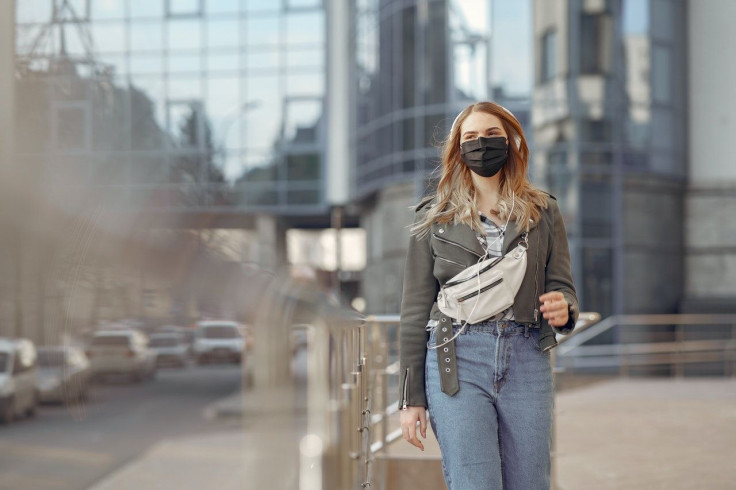Canada Now Requiring People To Wear Masks Covering Noses And Mouths On All Flights

KEY POINTS
- Canada’s Ministry of Transport has announced a new rule on air travelers
- Air travelers arriving or leaving Canada must face masks covering their noses and mouths
- Only children under two years old and those with disabilities are exempted
Canada’s Ministry of Transport announced a new government policy last week, which took effect Monday noontime EDT. The rule states that air travelers, when flying, must now cover their noses and mouths with face coverings or non-medical masks. They must also cover their noses and mouths when going through screening checkpoints found all over the country. The reason for this is that the screeners “cannot always keep two meters [6.5 feet] of separation between themselves and the traveler,” a statement released by the government said.
Required To Present Mask Or Face Covering
The Ministry of Transport also said such face coverings would be required in areas where travelers are unable to physically maintain distance from others or as advised by airline employees. Such travelers must also put on these face coverings when asked by a public health official or if there is a public health order requiring them to do so.
In addition, travelers on all planes arriving in or departing from airports in Canada are required to show they have non-medical mask or face covering upon boarding or disembarking. According to the new rule, travelers who fail to do so will not be allowed to continue their trip.
An Additional Measure
In an interview with the CBC, the Canadian Minister of Transport, Marc Garneau, said that only children below two years old and those with disabilities are exempted from the rule. Mr. Garneau said that Canadians must adhere to public health guidelines and to stay home as much as possible. If people need to travel, however, they must wear a face covering as an additional measure that everyone can take to protect those around them, Mr. Garneau added. This is particularly true in situations where guidelines on physical distancing cannot be maintained.
Canada’s transportation department, Transport Canada, for their part, said that face coverings and non-medical masks help promote good respiratory hygiene habits in public places. They said, however, that this does not mean people should forget other vital hygiene practices like frequent hand washing and social distancing. For them, these two practices remain the most effective method in helping stop the spread of COVID-19 in the global fight against the deadly disease.
© Copyright IBTimes 2025. All rights reserved.





















